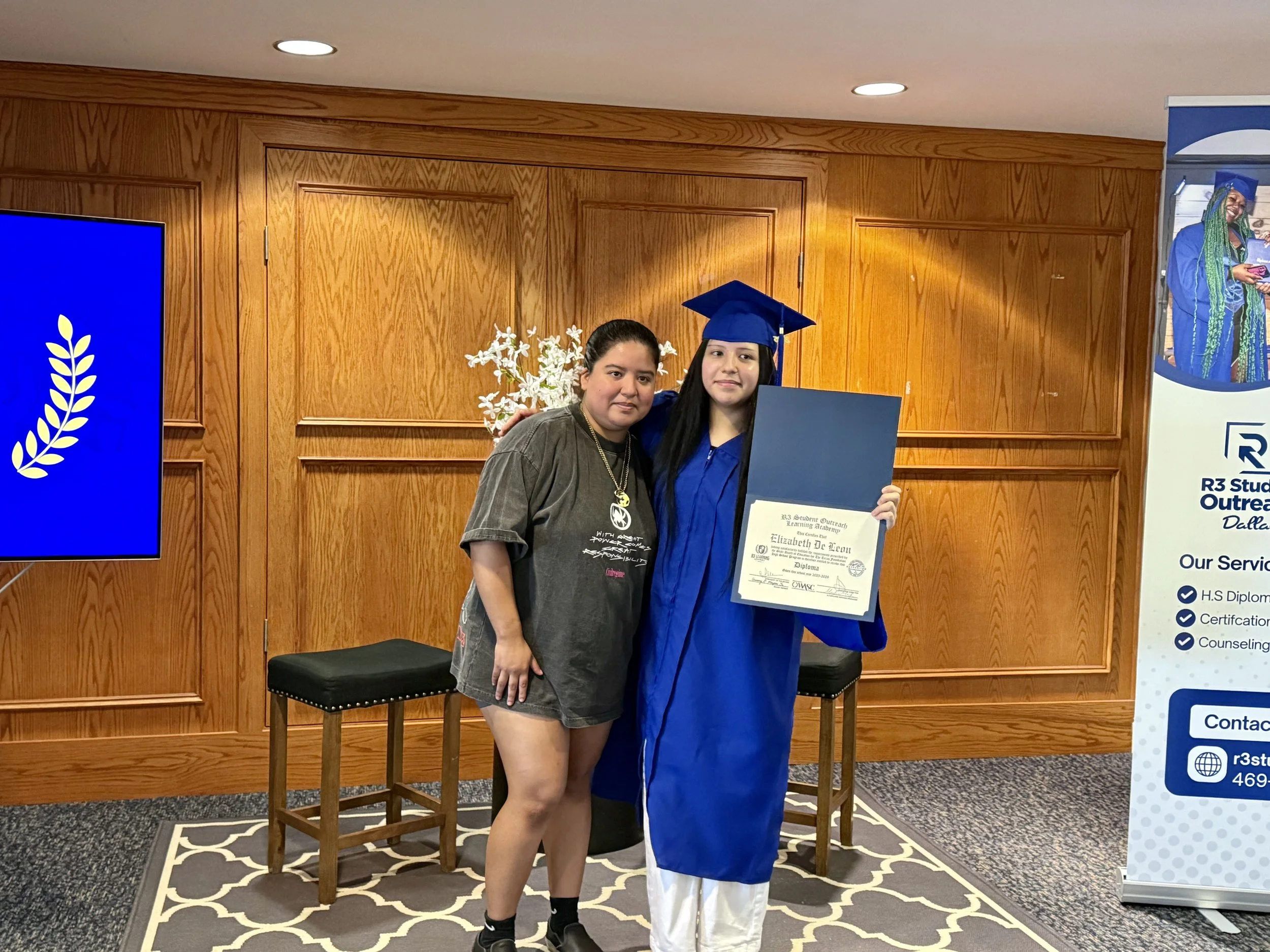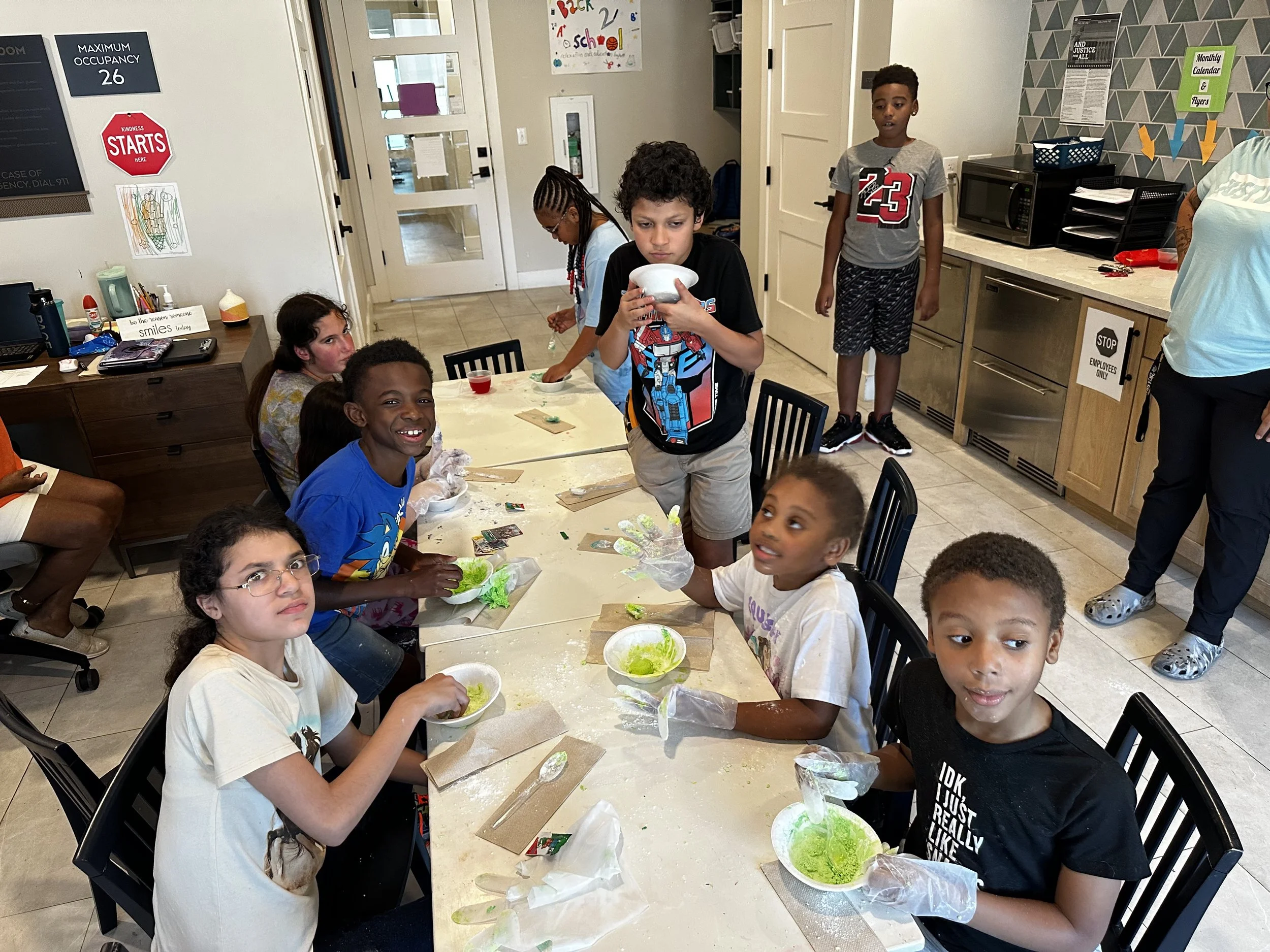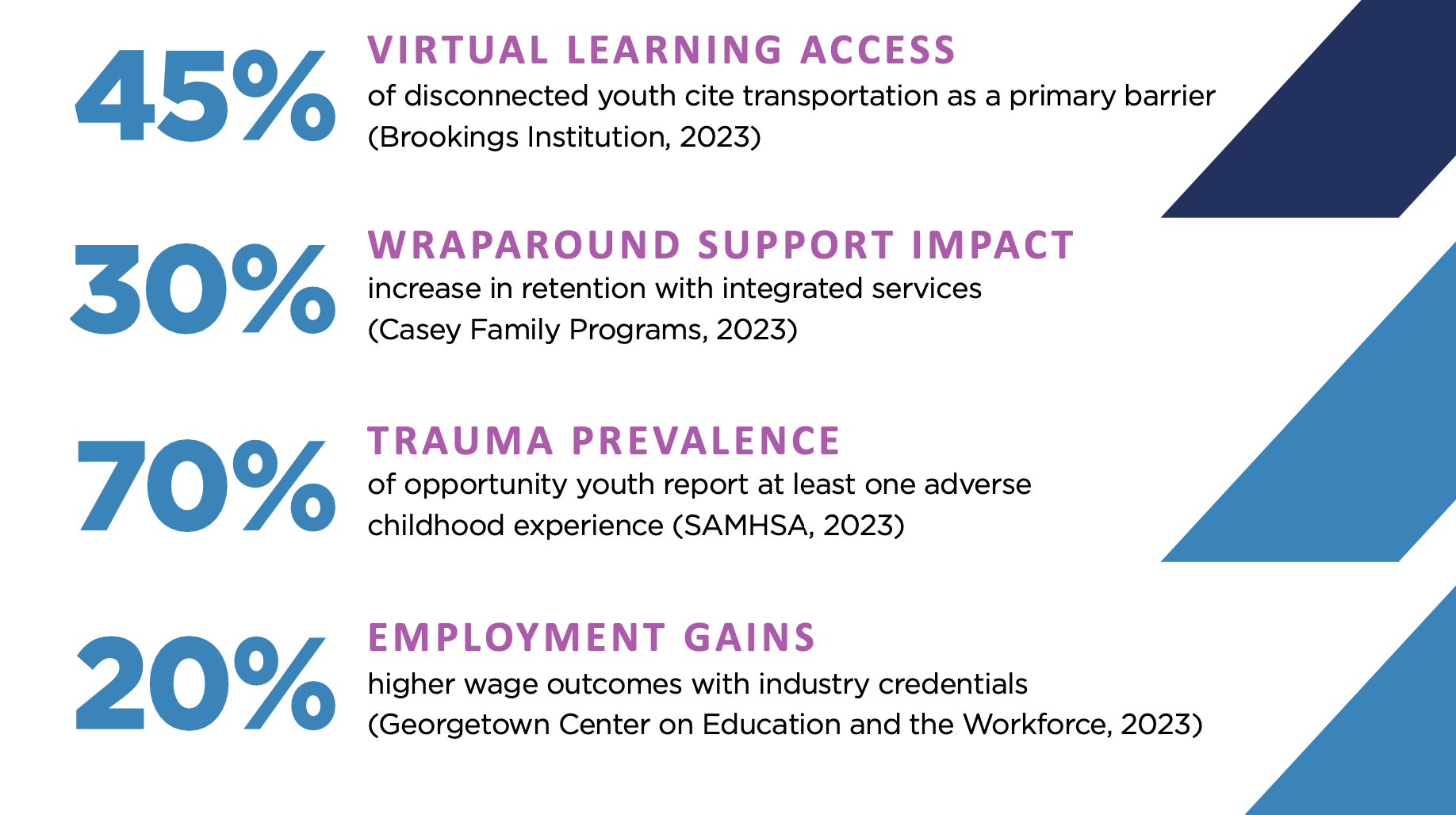
They Must Begin Again:
Proven Pathways to dismantle cycles of disconnection.
Evidence-Based Theory Of Change
The R3 program’s Theory of Change is grounded in the recognition that disconnected youth— particularly those facing systemic barriers such as poverty, trauma, and unstable housing— require flexible, holistic interventions to re-engage in education and workforce pathways (Jobs for the Future, 2024).
The core assumptions driving the theory include:
Flexibility increases access.
Virtual, asynchronous learning overcomes barriers of transportation, scheduling conflicts, and geographic isolation common among opportunity youth (Brookings Institution, 2023).
Wraparound supports enhance persistence.
Meeting basic needs such as food, housing stability, and childcare reduces dropout rates and improves focus (Casey Family Programs, 2023).
Trauma-informed practice boosts engagement.
Recognizing and accommodating the impacts of trauma and adverse childhood experiences fosters safer, more supportive learning environments (Substance Abuse and Mental Health Services Administration, 2023).
Career credentialing accelerates workforce entry.
Short-term industry-recognized certificates enhance employability and wage potential, creating clear pathways out of poverty (Georgetown Center on Education and the Workforce, 2023).
R3s integrated approach creates a positive feedback loop where education leads to employment, which stabilizes life circumstances, which in turn supports continued education and career advancement.
By disrupting cycles of disconnection, R3 envisions contributing to systemic change in how educational and workforce systems serve marginalized youth populations (Pew Charitable Trusts, 2023).

“I am forever thankful for this program when I started I was at a place in my life where I wasn’t moving forward and R3 Student Outreach Academy gave me the opportunity to elevate my life in many ways! If you’re wanting to further your education, this is the best place to start at to have a better future..”
— R3 Learning Academy Graduate
Systems Change Modules
Educational System Change
R3’s fully accredited virtual private school provides a laboratory for innovation in serving opportunity youth who are poorly served by conventional brick-and-mortar settings. Its 78% completion rate—30 percentage points above local averages—supports growing evidence that flexible, competency-based models improve engagement and success among at-risk students (National Center for Education Statistics, 2023; MDRC, 2023). Integrating workforce credentialing within academic programming further challenges entrenched silos and builds direct pathways to employment, informing policy dialogues on education reform in Texas and beyond (Brookings Institution, 2024).
Juvenile Justice Reform
The partnership with Dallas probation exemplifies community-based alternatives to punitive juvenile justice systems that have demonstrated limited impact on reducing recidivism. Studies show community programs reducing reoffense by up to 40% at substantially lower costs ($8,000-$12,000 annually per youth vs. $88,000+ for detention) (Pew Charitable Trusts, 2023; National Institute of Justice, 2024). R3’s model, emphasizing immediate access to education and workforce opportunities without bureaucratic barriers, aligns with best practices promoting restorative justice and trauma-informed approaches (Juvenile Law Center, 2023).
Workforce Development Integration
R3’s collaboration with local workforce boards and Google Career Certificates illustrates effective public-private partnerships that bridge the gap between disconnected youth and career-track employment. Research highlights that combining credential attainment with paid internships significantly increases job placement rates, addressing the “experience paradox” prevalent among opportunity youth (Georgetown Center on Education and the Workforce, 2023; Brookings Institution, 2023). Funding sustainability through workforce boards also models viable mechanisms for scaling such initiatives statewide. By embedding R3’s comprehensive model within existing systems and infrastructure, the organization serves as both a direct service provider and a demonstration site for scalable innovations. These efforts contribute to shifting policy and practice towards integrated, youth-centered approaches that dismantle systemic barriers to educational and economic success (Urban Institute, 2024).


